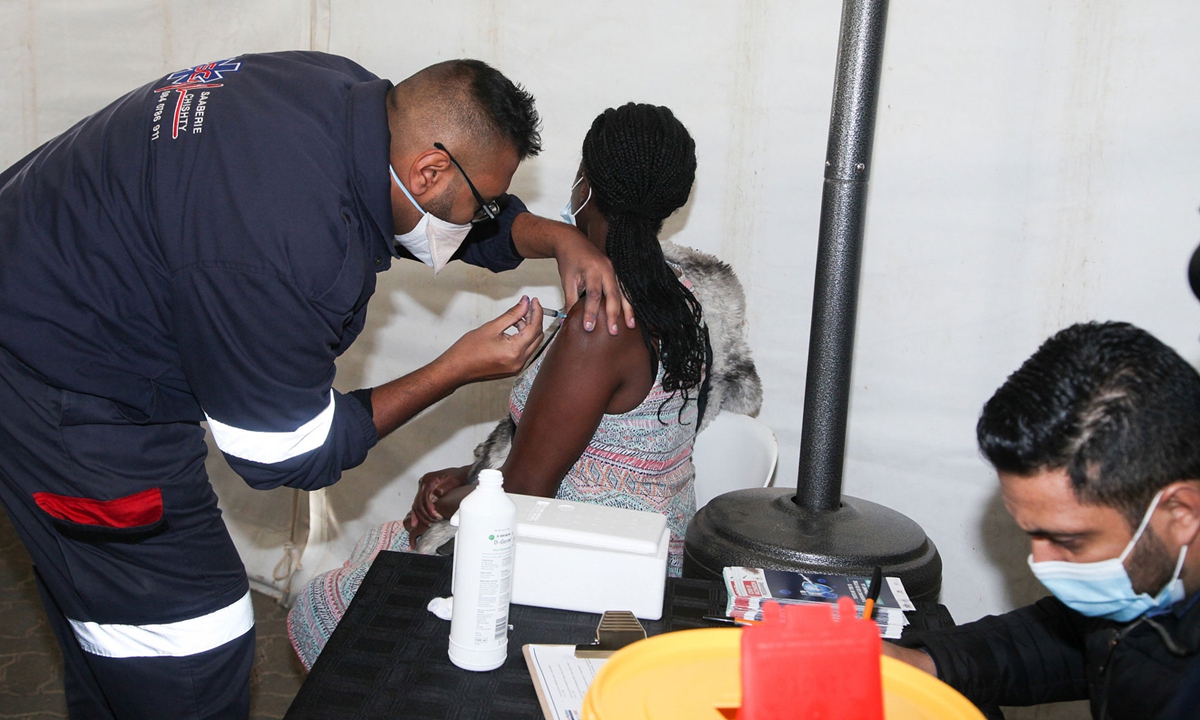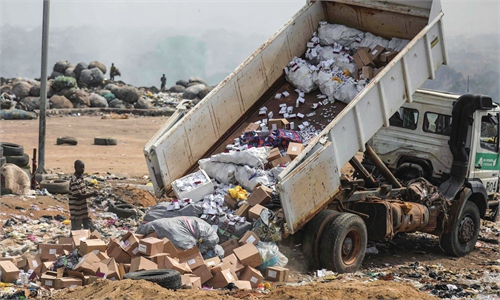
People receive COVID-19 vaccine in Johannesburg, South Africa, July 27, 2021.Photo: CGTN
Most vaccine donations arrive in the receiving countries close to expiry and without key parts like the syringes, an officer of the World Health Organization (WHO) Africa said in an e-mail to the Global Times, urging wealthier countries to consider giving donations with a longer shelf life to match the absorption capacity.
At a time when global cooperation and help are most needed, many countries on the African continent are facing "vaccine nationalism" from the West, experts said. According to media reports, in the past few months, several African countries have been forced to discard more than 3 million doses of COVID-19 vaccines because the vaccines expired within months of being received as donations.
Given the African continent's low full vaccination rate, experts described the situation as regrettable and heartbreaking.
Initially, there was limited supply to African countries for most of the year, with the purchasing and administration of the vaccines dominated by richer economies, Phiona Atuhebwe of the Regional New Vaccines Introduction Office of the WHO Africa, wrote in an e-mail to the Global Times.
"The main reason now is that most vaccine donations arrive in the receiving countries close to expiry and without key parts like the syringes," said the officer.
The officer urged wealthier countries to consider giving donations with a longer shelf life to match the absorption capacity - gaps in planning, coordination and management, and insufficient operational funding - of the receiving countries.
African officials and experts have described the West's donations as "vaccine nationalism."
"Donations being the major way through which Africa receives vaccines, most donations are a just 'second thought' political decision by developed countries, with vaccines near their expiry dates shipped to the continent," Adhere Cavince, a Kenyan scholar, told the Global Times.
The WHO noted that vaccination rates in Africa are low compared with the rest of the world, with many states at the mercy of foreign donations due to the lack of local production facilities and prohibitive costs of mass purchases, among other barriers.
Total vaccine doses administered in 53 African countries have reached 308 million, and the total number of full dose/second doses administered is 131 million, which accounts for only about 10 percent of the continent's population, according the data provided by the WHO Africa.
China provided about 180 million doses of vaccines to Africa as of November 30, 2021, covering almost all African countries. As the majority of China's donations were inactivated vaccines, which have a much longer shelf life and less demanding transport and storage conditions than the mRNA alternatives used in the West, there should be few cases of vaccines being discarded or wasted, medical experts said.

